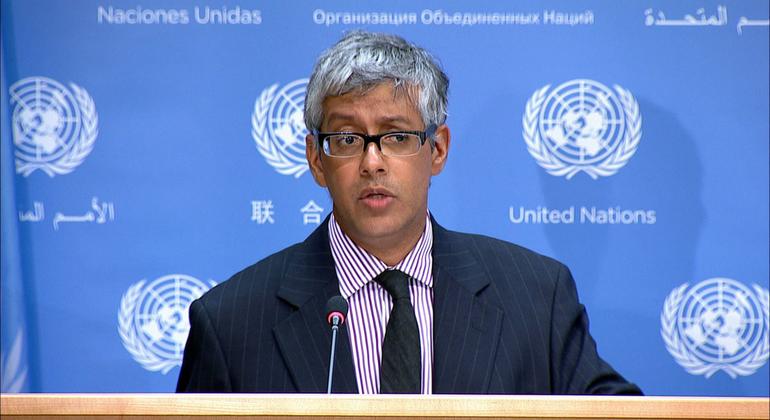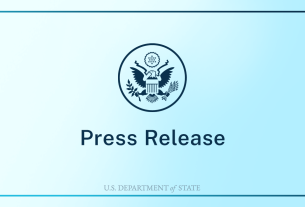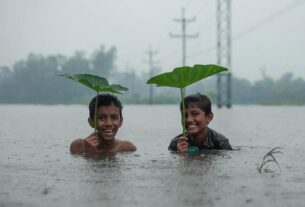The development follows the conclusion of an investigation by the UN Office of Oversight Services (OIOS), launched earlier this year after Israel alleged that several UNRWA personnel took part in the brutal assault on its territory in which some 1,200 people were killed and another 250 were taken to Gaza as hostages.
However, OIOS was not able to independently authenticate information used by Israel to support the allegations.
Appropriate measures and terminations
OIOS is the highest investigative body in the UN system and its reports are confidential but can be made available to Member States upon request.
Investigators made findings in relation to 19 UNRWA staff alleged to have been involved in the attacks, UN Deputy Spokesperson Farhan Haq told journalists in New York.
“In one case, no evidence was obtained by OIOS to support the allegations of the staff member’s involvement, while in nine other cases, the evidence obtained by OIOS was insufficient to support the staff members’ involvement,” he said.
Regarding these10 cases, he said that appropriate measures will be taken in due course, in conformity with UNRWA Regulations and Rules.
With respect to the remaining nine cases, the evidence obtained by OIOS indicated that the UNRWA staff members may have been involved in the 7 October attacks.
UNRWA Commissioner-General Philippe Lazzarini issued a statement acknowledging the completion of the probe.
“I have decided that in the case of these remaining nine staff members, they cannot work for UNRWA. All contracts of these staff members will be terminated in the interest of the Agency,” he said.
Information not authenticated
Asked about the extent of the staff members’ alleged involvement, Mr. Haq responded that he did not have specific information about the specific allegations.
He said the OIOS investigation involved visits to Israel for discussions with officials and to see and review information held by authorities there.
The investigators also travelled to Amman, Jordan, to obtain and review relevant information held by UNRWA, including on its staff and operations.
They also reviewed information and communications technology data, such as email records and information on agency vehicles, in addition to information from various other sources, including that released to the media and other public sources, and communications with several Member States.
“However, one thing I’d like to point out is that since information used by Israeli officials to support the allegations have remained in Israeli custody, OIOS was not able to independently authenticate most of the information provided to it,” he noted.
Parallel probe
The accusations surfaced in January when Israel informed UNRWA of the alleged involvement of 12 staff members in the attacks. UNRWA immediately identified and terminated 10, while two were confirmed dead.
The UN later received information from Israel about seven more cases – five in March and two in April.
Following the initial allegations, UN Secretary-General António Guterres immediately ordered OIOS to investigate.
He also appointed an independent review panel to conduct a separate assessment into UNRWA to determine whether the agency was doing everything it could to ensure neutrality and to respond to allegations of serious breaches when they arise.
The panel – headed by former French Foreign Minister Catherine Colonna – published its report in April.
Speaking at the time, she said “the set of rules and the mechanisms and procedures in place [at UNRWA] are the most elaborate within the UN system, precisely because it is such a difficult issue to work in such a complex and sensitive environment.”
Mr. Lazzarini said that UNRWA has started implementing the panel’s recommendations and is fully committed to them.
“Finally, I reiterate UNRWA’s condemnation of the 7 October attack in the strongest possible terms. I call – once again – for the immediate and unconditional release of all hostages and their safe return to their families,” he said.
UN chief’s opinions
Mr. Haq was asked about the Secretary-General’s views regarding the OIOS findings.
The UN chief “believes that it is important that we go through this very carefully, given the fact that any involvement in these attacks would constitute a major betrayal of trust,” he said.
“Obviously, there were actions that were taken for the benefit of the agency that were very swift and very decisive in terms of dealing with the individuals who had been named at first, and now it’s good to have all of the information available,” he added.
Referring to the Gaza war, Mr. Haq also underlined the importance of remembering that a “huge number” of UNRWA staff have been taking enormous risks for months, keeping hundreds of thousands of people alive, whether in shelters or by providing food and services.
“And we want to make sure that the reputation of our UNRWA staff, our dedicated staff, including about 200 people who have lost their lives since 7 October, is fully recognized and that UNRWA gets the support that it needs,” he said.



